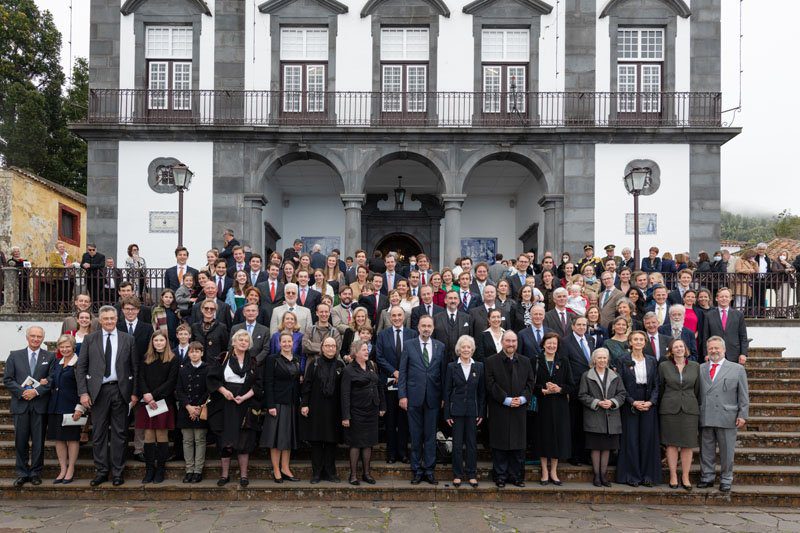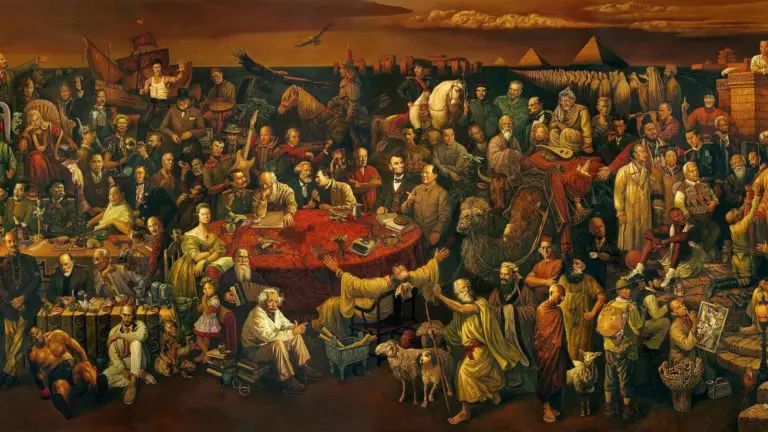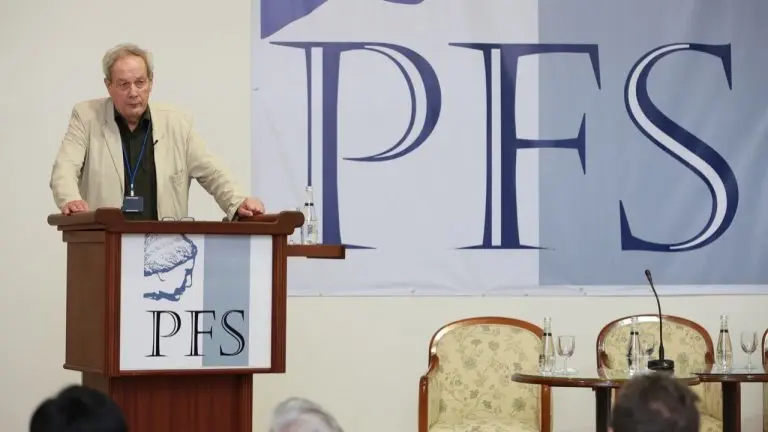When the old fellow on the plane, in the middle seat, started drooling on my shoulder as he fell asleep, I knew I was in for something of a saga. A flight to the Portuguese Island of Madeira certainly appeals to what might be called the ‘elderly age bracket’; only the daily flight to Lourdes has more of the infirm.
Some were on this flight at the end of March for the annual flower festival, the date of which had not actually been announced; they were obviously praying for some lush vegetation to make the four hour journey worthwhile. Others were coming for the moderate weather, and to sample the fortified wine named after the island. In England, Madeira wine has something of a “maiden aunt” reputation, served by Miss Marple, played, of course, by Margaret Rutherford, at Three O’clock, served with large slices of the cake also named after the island. According to form, usually by 4 pm, the Vicar will have been murdered in the study, with the lead piping.
A small, but significant group, were also flying into Madeira before April 1st, with food and drink as a secondary blessing, after the real reason for their travel. From all parts of the world, but particularly Europe and the United States, pilgrims—for that, even in a rather disorganized way, is what we all claimed to be—were making their way to celebrate the 100th anniversary of the death on April 1st, 1922, of Emperor Karl of Austria-Hungary, known in the Catholic Church as Blessed Karl, beatified by Pope St. John Paul II, in 2004.
At least a hundred members of the Habsburg family, including numerous Archdukes and Archduchesses, were there to celebrate their saintly ancestor. Still a notably Catholic family, four Habsburg’s who had been ordained priests were also present, a sign that the piety that characterised Blessed Karl’s life had not been abandoned over the last century since his untimely death.
A beautiful and reverent Mass was celebrated by the Archbishop of Funchal on the day of Emperor Karl’s anniversary, in the Cathedral. Earlier in the day, both the Deputy Prime Minister of Hungary, and the Cardinal Archbishop of Esztergom, Hungary’s Primate, had venerated Blessed Karl’s tomb on the “Monte,” in the little Church of Nossa Senhora do Monte, where the Emperor had been buried, only a few minutes’ walk from his family home while in exile on Madeira.
Habsburgs, along with some of the hoi polloi like me, were invited to share a celebratory lunch after the Mass. A more charming, gentle, faithful, and friendly group would be hard to find—surely, again, something of the heavenly influence of Blessed Karl. It should be mentioned, of course, that Blessed Karl’s wife, the Empress Zita, is also on the road to canonization in the Catholic Church, currently with the title, ‘Servant of God.’ As she only died in 1989, at the age of 96, a number of her grandchildren were present in Funchal.
Readers will know something of the history of why the last Habsburg Emperor and his wife and young children were forced into exile on Madeira; an assumption one could not make of the general public, but certainly of the readership of The European Conservative. The question, however, many might ask is: apart from a family remembrance, why would people travel to celebrate the life of a seeming anachronism in the 21st century, namely an Emperor who did have the clothes, but who was defeated and exiled?
An anachronism, for a conservative, might well be good reason enough to celebrate, and not just to be contrarian and difficult. There are other qualities which today sound anachronistic, particularly when applied to those who have positions of leadership, especially in the world of politics—qualities like duty, integrity and, perhaps the most old-fashioned, honour.
The Catholic Church believes that a saint, man, woman, or child, is canonized for three reasons. In the first place, so that the saint might pray, from the glory of Heaven, that is, the Church Triumphant, for those on earth still struggling, the Church Militant. Second, the saint is proposed as a role model, someone whose life we may imitate in the way he or she responded to gains and losses on this earth. Lastly, and linked to the second reason, the saints are examples, showing us that holiness is possible, in whatever vocation or station in life we are assigned. That is why there is a saint for every occupation, a ‘Patron’: there are soldier saints, doctor saints, doorkeeper saints, husband and wife saints, child saints and yes, Royal saints.
It was not because he was an Emperor that Blessed Karl of Austria was beatified, and will soon, God willing, be canonized. There is evidence enough in history that high position and privilege does not, necessarily, lead to holiness of life. He was also not elevated to the altars, as some asinine writers have claimed, because he was a heroic failure. Quite simply, he lived the vocation he was given in an exemplary manner; he lived, as the Church says, a life of “heroic virtue.”
The anachronism of monarchy, albeit the kind of constitutional monarchy that Karl would have instituted, if he had the chance, is, as stated, something we can both celebrate and, perhaps, propose once again, for Europe. One might ask quite bluntly: has what has followed the demise of the Austro-Hungarian Empire been better? Is Emperor Emmanuel Macron a more worthy role model for the 21st century than Emperor Karl?
Silly comments, the easy writing of superficial journalists, and part-time historians, about ‘Ruritanian’ nobility and plumed hats, betray more about the authors’ inner emptiness, than any serious comment about the role they denigrate. It is true that there were, in Funchal, a number of plumed hats and a lady wearing what appeared to be a most extraordinary knitted flowerpot on her head; but they were the icing, not the cake.
Pilgrims came because Blessed Karl of Austria lived those virtues and qualities contemporary society longs to see in its leaders, in Church and State. He was a man of integrity, a ‘whole’ man; his inner and private life was the same as his public life. He believed in the virtue of duty: to be dutiful, even to the point of losing his country, his Empire, his worldly goods and ultimately his life, makes him a man worthy of admiration and imitation. He was and is, as a young female friend especially devoted to Karl said to me, an immensely attractive figure for women today, because he was a man who knew how to be a man, and a devoted husband and father.
Pilgrims came to Madeira, in 2022, to celebrate Blessed Karl with Mass and prayer, and cake and wine—holy and wholesome things to enjoy on a pilgrimage. Along with St. Thomas More, who, in 2000, was declared the patron saint of statesmen and politicians, discerning pilgrims and all who love Blessed Karl will recognize in him another patron. Blessed Karl is a patron of dutiful leadership, of personal integrity, and of fidelity until the end, without counting the cost. That is the kind of leadership Europe needed in 1922 and still needs in 2022.






